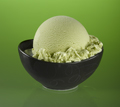
source: Rariteas
Despite a challenging economy, the tea industry is flourishing. This was the overall consensus at the 2010 World Tea Expo in Las Vegas earlier this month.
“There’s no stopping the specialty tea industry,” says George Jage, president and founder of the World Tea Expo. “While the global economy is slowly repairing itself, the tea industry is thriving. The energy, aroma and, most importantly, the business activities on the show floor is a powerful leading indicator of the explosive growth for specialty tea in North America in the year ahead.”
Rona Tison, vice president of corporate relations for ready-to-drink (RTD) green tea manufacturer ITO EN (North America) Inc., Brooklyn, N.Y., says, “We had quite a bit of leads that we’re excited to follow-up on, and that’s a confirmation of the growing interest in the specialty tea industry.”
RTD tea is the fastest growing segment of the U.S. tea business. Dairy processors have the right equipment, packaging and distribution to become big-time players in this booming beverage business.

source: TGI Friday’s
As a result of the economic downturn, however, after several years of remarkable growth, canned and bottled tea - the largest RTD component-hit a plateau, declining slightly in 2008 and rising less than 1% in 2009 following stellar growth of 27% in 2006 and 23% in 2007, according to the report. Although not quite as severely, the fortunes of refrigerated tea have also declined, from 29% growth in 2006 to 6% growth in 2009. On the other hand, sales of bags/loose tea ticked up a bit after two years of decline, growing 1% in 2008 and 3% in 2009 as tea lovers converted (at least temporarily) to this less convenient - but also much less expensive - option.

source: Ciao Bella
“During the down economy consumers have been increasingly focusing on self care in order to avoid becoming ill, and the trend whereby marketers are positioning tea even more heavily than usual on its healthful properties is apparent in the many new functional tea products hitting the market,” says Don Montuori, publisher at Packaged Facts.
And here’s more positive news on tea. In a new study published online June 18 inArteriosclerosis, Thrombosis and Vascular Biology, researchers found that people who drink a lot of tea or drink coffee in moderation are less likely to die of heart disease than coffee and tea abstainers. Researchers followed more than 37,000 people in The Netherlands for 13 years in one of the largest and longest studies ever to examine the impact of coffee and tea drinking on heart health.
Findings included:
• People who drank three to six cups of tea per day had a 45% lower risk of death from heart disease than people who drank less than one cup of tea a day.
• Drinking more than six cups of tea a day was associated with a 36% lower risk of heart disease, compared to drinking less than one cup.
But most of the people in The Netherlands study drank black tea, which is also consumed more than green tea in America. The perception has been that green tea is the “healthy” tea, but this study suggests black tea may be just a good for the heart.
Dairy processors: got tea? If not, you might want to get on board.
